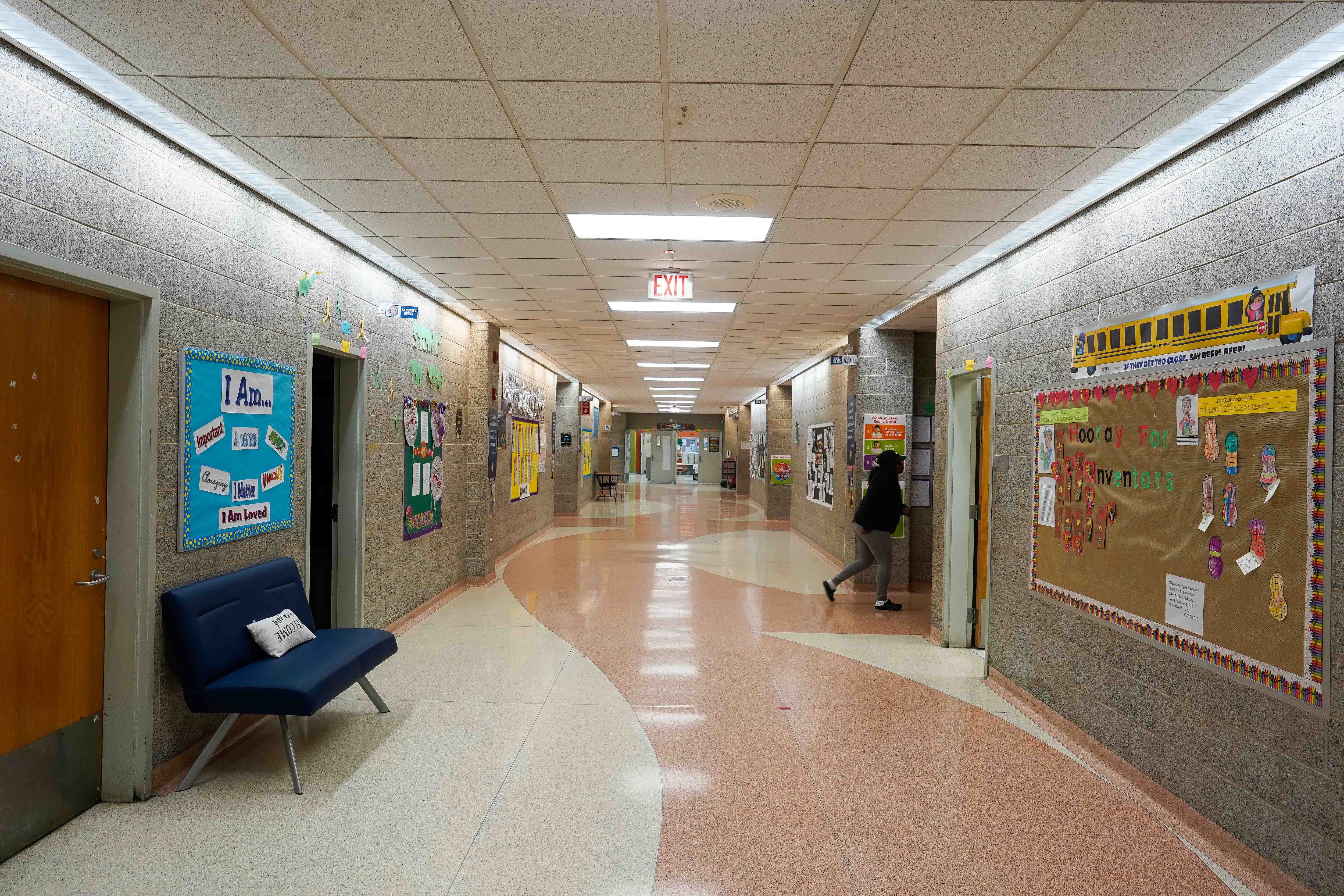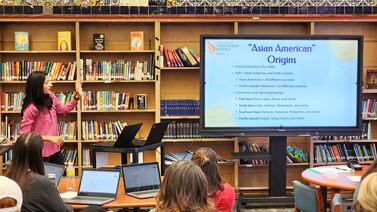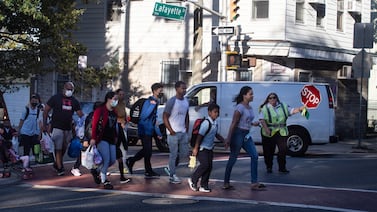The Chicago Board of Education approved a flat $9.4 billion spending plan for the next school year on Wednesday — and warned of looming deficits as federal COVID money runs out.
The 2024 budget is a fraction of a percent larger than last year’s, and allocates roughly half — or $4.8 billion — directly to schools. Mayor Brandon Johnson campaigned on moving school funding away from being based on enrollment, a shift officials say is underway.
But the overall budget could grow later this year after the district does a comprehensive facilities review and puts forward a supplemental capital budget. On Wednesday, the school board approved a smaller $155 million capital plan. It did not include a hotly contested proposal to build a $120 million new high school on the Near South Side, though money for that project was included in the state’s 2024 budget signed earlier this month.
District officials and school board members said Wednesday they hope the state will provide Chicago Public Schools with additional funding in the future to avoid a fiscal cliff when COVID recovery money runs out next year.
“Many districts around the country right now are pressured to cut,” said Chicago Public Schools CEO Pedro Martinez. “We’re seeing layoffs. We’re seeing school closures. And so it is, it is a warning for us.”
Chicago Public Schools used much of its COVID recovery money to pay for existing and additional staff, such as academic interventionists and social workers. The district also boosted summer school programs and went on a technology spending spree.
Most schools will see flat or increased budgets under the approved 2024 budget. But a Chalkbeat analysis of school-level budget data released earlier this month shows that on a per pupil basis, 39 schools, or about 8% of campuses, will see budget cuts. Of those schools, 24 were predominantly Black, eight were majority Latino, and three were predominantly white. But schools serving predominantly Black students also saw the most substantial per pupil increases overall.
The district is forecasting a deficit of roughly $628 million by 2026. Next year, the district will spend the last of its $2.8 billion in federal COVID money, leaving it no financial cushion against declining student enrollment and rising pension and debt costs. Roughly 80,000 fewer students are enrolled in Chicago schools than there were a decade ago. The district has not released enrollment projections for next year.
School board president Miguel del Valle, who also announced Wednesday he would be stepping down as his term ends this month, said the district was facing a structural deficit during his first budget in 2019.
“If it hadn’t been for the federal dollars, that began to arrive … we’d be in even worse shape than we are,” Del Valle said. He noted that roughly a quarter of the district’s state funding goes toward paying down debt for both teacher pensions and past school construction. “Those two combined have us in a bind.”
The nonpartisan budget watchdog Civic Federation raised concerns about the “long-term viability” of Chicago Public Schools budget. The group’s annual analysis said it’s imperative the district work with the City of Chicago on a long-term financial plan that addresses several of the “financial entanglements” between the two before the school boards begins its shift to being elected, rather than appointed by the mayor.
Voters will elect 10 members in 2024, while the mayor will appoint 10 and a school board president. The 11 appointed seats will be elected in 2026 and by 2027, all 21 members will have been elected.
“Now is a critical time for Chicago Public Schools to plan for its financial future,” the watchdog group wrote.
Becky Vevea is the bureau chief for Chalkbeat Chicago. Contact Becky at bvevea@chalkbeat.org.







